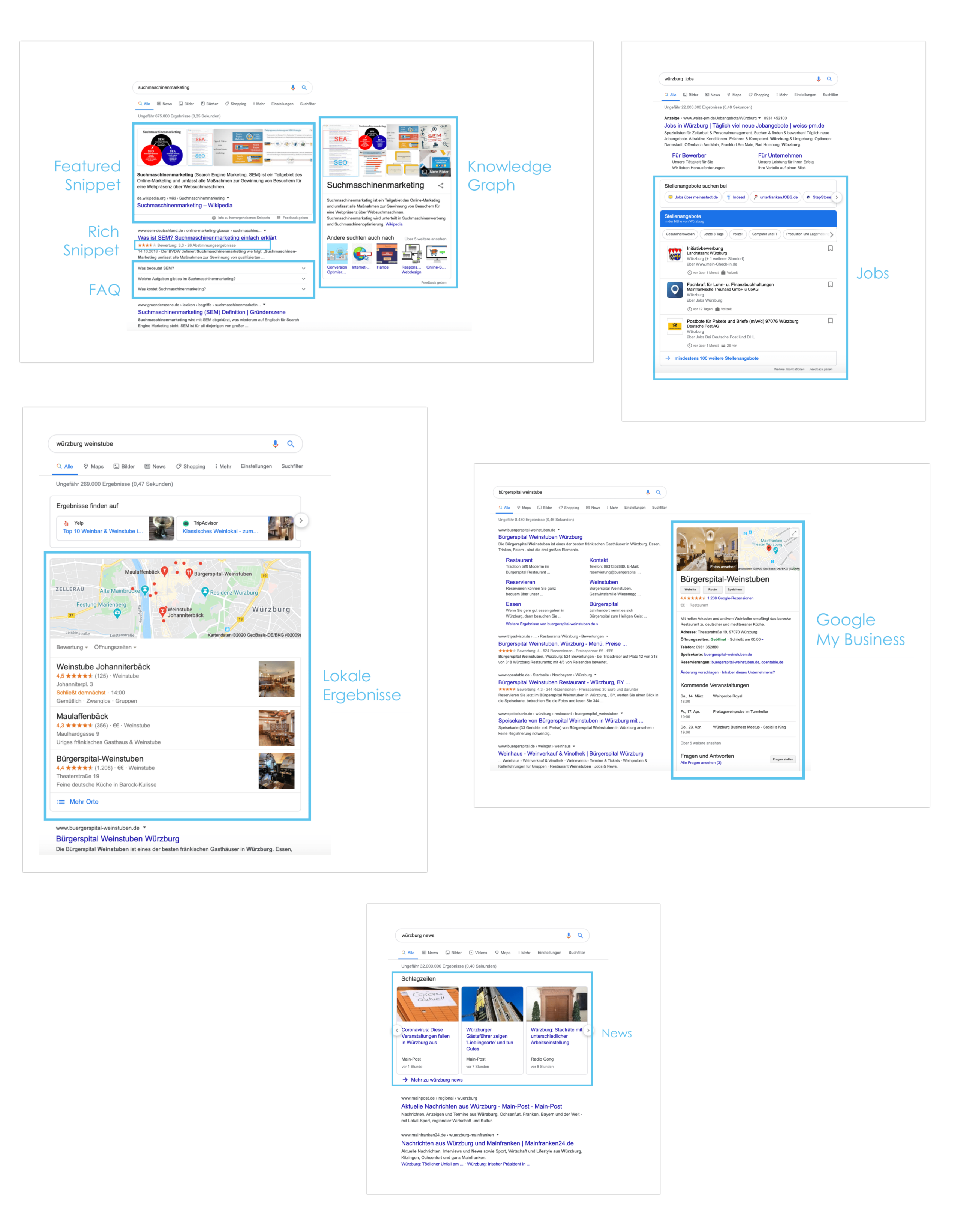DALL-E is an AI model based on the GPT-3 architecture and has been specially trained to generate images from text descriptions. Find out more here. ... Continue reading


SERP stands for Search Engine Result Page. This is the name given to the results page of a search engine such as Google. If a user enters a search query, he or she is presented with a list of search results in the SERPs. These are sorted by relevance and are intended to provide the user with a precise answer to his question as quickly as possible.
The composition of the Search Engine Result Pages always depends on the keywords entered. As a rule, the SERPs contain organic search results and paid ads. The latter are located at the top and bottom of the SERP and are marked as ads.
The search results on the SERP are displayed as snippets. These small text modules serve as a preview, so to speak, and consist of a URL, the title and the description.

Depending on the search query, other formats enriched with further information are displayed in addition to the SERP snippets. For example, the following are displayed in Google search results:

In order to gain more attention in Google search results by providing additional information and offer added value to the user, it is recommended to use structured data.
Google has introduced significant innovations with the introduction of AI Overview through the Search Generative Experience (SGE) in the standard search. Erfahre mehr zu den Veränderungen der SERPs! 🔎
When a user enters a search query, they want a precise answer as quickly as possible. Therefore, most users click on one of the top SERP snippets of a search engine’s results page instead of scrolling through the rest of the entries.
This is also reflected in the number of clicks. Already from the first to the second search result, the click rate drops significantly. According to a study, around 60% of users click on the first search result – at the second SERP snippet, it is just 16%. With descending position on the search engine results pages, the declining trend continues.
The second page of the results list is only called up by a fraction of users. Accordingly, the results there are rarely clicked.
In order to capture the coveted traffic of the first positions, it is therefore the goal of website operators to place their own page as far to the front as possible in the SERPs. This can be achieved with the help of search engine optimization measures.
The position of a website in the results pages of a search engine is not static. If you display Google search results for a keyword, the order of the displayed SERP snippets may change within a very short time. But how does the search engine decide which information is important for a user?
The algorithm of a search engine evaluates which result has a high relevance for a user based on defined, sometimes secret criteria. But user-specific factors also influence the search results displayed. These include, for example:
From time to time, adjustments are made to the search engine algorithm, evaluation criteria are added or change. Due to these updates, rankings can change significantly. Therefore, for a good position in the Search Engine Result Pages, continuous monitoring and optimization strategy is of great importance for online success.
First impressions count – this also applies to the results list of a search query. A good position in the ranking indicates that the search engine classifies a page as relevant. Now, however, the user should also call up the page. Therefore, it is worth optimizing the SERP snippet so that it appeals to the user and encourages him to click.
Olga Fedukov completed her studies in Media Management at the University of Applied Sciences Würzburg. In eology's marketing team, she is responsible for the comprehensive promotion of the agency across various channels. Furthermore, she takes charge of planning and coordinating the content section on the website as well as eology's webinars.
Never miss the hottest news again.

